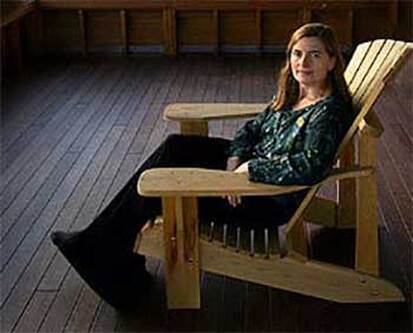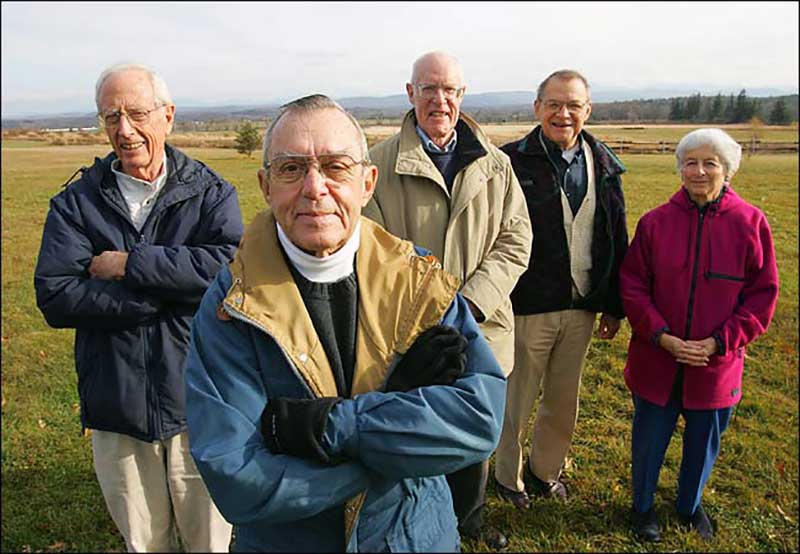 Who is the tough-looking team in this New York Times photo from 2005? Standing behind my father, Dick Walters, are Dick Austin, MD, Carmer Van Buren, MD, David Babbott, MD, and Ginny Walters, PhD (co-founder of PCV). As Ginny writes today (at age 96), “Having MDs who became active in the campaign in the beginning of PCV’s work was really meaningful. Dick Austin wrote really good letters to the editor citing his experience as a physician. He never minced words." The NY Times article quoted Dr. Austin as saying, "I've seen some of my friends here die rotten deaths." He cited the long periods of heavy sedation and misery for terminally ill patients and their families. Dr. Dick Austin died at the age of 99 this past week. The New York Times article also included a picture of Dr. Diana Barnard, who spoke passionately about the need for Act 39 in the early days of the campaign. Dr. Barnard continues to serve on PCV’s Board of Directors, as does Dr. Jaina Clough, both palliative care physicians in the UVM Health Network. We take this moment to honor these doctors. Throughout PCV’s history, both practicing and retired doctors served on our Board of Directors and Advisory Board, including Dr. Don Robinson, Dr. Charles Gluck, Dr. Stephanie Barnes, and until this past summer, Dr. Fred Crowley, a retired radiologist and past president of the Vermont Medical Society. Medical aid in dying is now widely available in Vermont. Dozens of physicians across the state have prescribed medical aid in dying under Act 39. Oncologists and neurologists, along with palliative care doctors, being the specialists who serve the majority of terminally ill patients who qualify under Act 39, have the most experience. At the same time, many physicians are just now being asked by patients about medical aid in dying for the first time. That is often why it takes several conversations for people who are interested in Act 39 to elicit a commitment from their physician to prescribe. Multiple discussions build trust in the relationship and confidence on the part of the doctor that the patient is making a well-considered and informed decision. The PCV team crafted our How to Talk to Your Doctor page to help guide you in these discussions. As we describe the persistence often needed, it’s not about being aggressive or demanding; it’s about helping your physician understand how important this option is to you. Requesting medical aid in dying requires planning. Start early. In recent conversations with patients on PCV’s hotline, we are seeing that many people wait until it is too late to navigate the medical and legal process of Act 39. People assume that it will be just like requesting any other medical treatment, not realizing that the law requires multiple steps with time in between, and that if their doctor is new to medical aid in dying, multiple meetings may be needed to help them come to the decision to support their choice. It is also the case that some people delay end-of-life discussions because they want to be focused on living and healing rather than dying. Paradoxically, having end-of-life conversations early can relieve a lot of uncertainty and help reduce fears and concerns. In this way, early conversations about dying are life-giving. We strongly encourage you to share this perspective with anyone who is living with a terminal disease. We are always here to listen and help patients and healthcare providers with Act 39 conversations. With warm regards, Betsy J. Walkerman, President
I don't think so the bilingual bearing is dynamically enormous as isolated and the single language informational construction in our country. This assertion is certified by the outline drove by you. If its indistinguishable to you keep up posting thusly. Comments are closed.
|
Categories
All
Archives
July 2024
|
Proudly powered by Weebly




 RSS Feed
RSS Feed